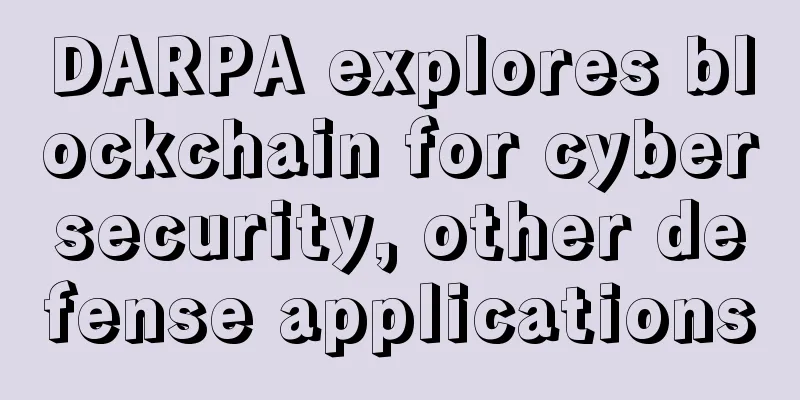DARPA explores blockchain for cybersecurity, other defense applications

|
Rage Review : The U.S. Department of Homeland Security has previously worked with blockchain startups to create a distributed ledger-based identity authentication system for border control and other purposes. The U.S. Defense Advanced Research Projects Agency has also made some important investments in the blockchain field to develop blockchain-based security systems. Although it may take some time for blockchain technology to provide end-to-end solutions for the information technology and defense sectors, this has already shown that U.S. national departments are also paying attention to blockchain technology. Translation: Nicole The immutability and security of distributed ledger technology promotes transparency, accountability, and security across various industry sectors. The defense and cybersecurity sectors have benefited greatly from blockchain technology as it is used in various projects involving cybersecurity. The potential use of blockchain technology in security applications has attracted the interest of the U.S. Department of Defense. The Defense Advanced Research Projects Agency, or DARPA, has made some important investments in this area to develop blockchain-based security systems. The agency has also supported a number of startups in order to accelerate research and development in the area. A few DARPA-funded startups working in the field of “secure blockchain” include Guardtime Federal and Galois Inc. It is speculated that in the coming years, a large number of cyber attacks could be avoided by applying blockchain systems to cybersecurity. According to DARPA program manager Tim Booher, the use of blockchain technology could potentially eliminate cyber attacks like code injection. David Hamilton, president of Guardtime Federal, noted that using blockchain technology will help collect evidence about security breaches and hacking attempts, which can be used to prosecute those responsible.
Both Guardtime and Galois are involved in creating tamper-proof computer systems to protect the U.S. nuclear arsenal. They are also exploring the use of distributed ledger technology in decentralized communications systems for military applications. Even the Department of Homeland Security is working with blockchain startups to create distributed ledger-based identity verification systems for border control and other purposes. However, the applications currently being developed will not be stand-alone systems. They will need to augment existing systems to ensure normal functionality and efficiency. It may take some time before blockchain technology can provide an end-to-end solution for both the IT and defense sectors. |
>>: 3M scam makes a comeback, Bitcoin becomes the payment of choice
Recommend
What does it mean when the love line is forked?
Some people have forked palm lines on their hands...
The irony of Bitcoin’s fading magic
Bitcoin — a decentralized, (mostly) digital curre...
McKinsey, the world's largest consulting giant, released a blockchain development report: Blockchain technology will reach its full potential in the next five years
McKinsey McKinsey & Company , the world's...
How to tell if a man has crow's feet
Crow’s feet also affect our fortune; so, how do w...
How much do you know about ASICs for Ethereum and Monero?
The first article introduced the entire mining in...
Lightning Network could solve Bitcoin's block size problem
Bitcoin’s block size is one of the hottest topics...
Dialogue with the decentralized liquidity staking protocol Rocket Pool: How to promote the democratization of Ethereum Staking?
Before the Shanghai upgrade, ECN had the honor of...
Character Feature: Wu Jihan emerges from the darkest moment
Wu Jihan will never forget the night he cried bit...
Japan exports Mijin blockchain technology to two major Belgian municipal governments to make municipal services more efficient
According to the Huobi Blockchain Research Center...
Abkhaz authorities confiscated 6,000 mining machines, but an estimated 30,000 are still being used for illegal mining
According to Bitcoin.com, at a press conference t...
Analysis of the dragon and phoenix eyes of a woman who is both beautiful inside and out
What does a woman’s face look like with dragon an...
What does a protruding forehead mean for a man?
The forehead is the upper part of the three parts...
Is it good for men with beards?
Beard is one of the characteristics of men, symbo...
Kaiko Report: BCH Wins Q3 Liquidity Growth Crown, BTC and ETH Lag Behind
Cryptocurrency traders who anticipate market vola...
How you sleep tells your life story
Sleep is a spontaneous and reversible resting sta...









